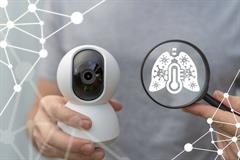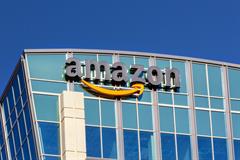
Home Networks Broaden the Attack Surface, Posing New Threats to Enterprise Cyber Security
The extremely rapid surge of telecommuting has widened the attack surface for potential cyber threats, exposing the modern enterprise to a new generation of expanding risks from malicious attacks.
“The work-from-home (WFH) paradigm that has become the new normal in the age of coronavirus comes with exacerbated network security risk – as evidenced by growing a number of botnets and automated attacks that are taking advantage of known vulnerabilities in both consumer and corporate IT gear,” writes Tara Seals of Threatpost. “According to Nate Warfield, senior security program manager at Microsoft, new vulnerabilities found in network and Internet-of-Things (IoT) equipment are being weaponized by cybercriminals within days of disclosure – and sometimes hours.”
I strongly urge you to read Tara’s article and ramp up your security practices. We need to stay vigilant and keep a sharp eye out for evolving risks posed by mixing vulnerable home networks with enterprise IT systems. This is a battle we cannot afford to lose.
Markets Sink on Economic News

Markets fell today, reacting sharply to news of continuing economic disruptions caused by the ongoing COVID-19 pandemic and its global impact on commerce.
“The major averages were sharply lower around midday as Amazon shares sold off while concerns over U.S.-China tensions increased. The Dow traded about 600 points lower, or more than 2%. The S&P 500 slid 2.8% while the Nasdaq Composite dropped 3.1%. Wall Street was coming off its biggest one-month rally in over 30 years before Friday’s sell-off,” according to reporting by Fred Imbert of CNBC.
Despite major sell-offs, there were bright spots this week. “Apple proves resilient,” writes Ivana Freitas of CNBC. “On Thursday, the tech giant beat earnings estimates for its second quarter, seeing a small revenue growth to $58.3 billion. The company also approved a $50 billion increase in its share repurchase program and pulled guidance for the quarter ending in June.”
Earlier in the week, Microsoft showed strength, driven largely by its cloud and gaming units. “Microsoft shares rose as much as 5% in extended trading on Wednesday after the company reported fiscal third-quarter sales growth of 15%, fueled by its cloud business,” writes Jordan Novet of CNBC. “The company said in a statement that the coronavirus “had minimal net impact on the total company revenue” in the quarter.”
Microsoft said its revenue grew 15 percent, from $30.57 billion on an annualized basis in the quarter, according to CNBC.
Retailers Relying on AI-Equipped Camera Systems to Maintain Social Distance and Limit Liability

In another example of the increasingly tight integration of sophisticated technologies and the traditional consumer economy, more stores are using AI to prevent the transmission of COVID-19 and to limit their liability.
“Stores and workplaces eager to avoid spreading the novel coronavirus are equipping existing security cameras with artificial intelligence software that can track compliance with health guidelines including social distancing and mask-wearing,” writes Paresh Dave of Reuters. “Several companies told Reuters the software will be crucial to staying open as concerns about COVID-19, the respiratory illness caused by the virus, persist around the world. It will allow them to show not only workers and customers, but also insurers and regulators, that they are monitoring and enforcing safe practices.”
This trend toward the greater adoption of AI-based surveillance technologies by mainstream organizations isn’t likely to end soon. I predict we’re in the early stages of a truly global transformation in which technology will play a major role.
AWS Offers Managed Service to Streamline Use of AI

Amazon Web Services is offering a new managed service aimed at making it easier for users to review AI and ML processes.
“Amazon Web Services (AWS) announced the general availability of its Augmented Artificial Intelligence (A2I) service, which is designed to streamline human review of low-confidence artificial intelligence (AI) workloads,” writes Tobia Mann of SDX Central. “The managed service is designed to make it easier for users of Amazon’s various AI capabilities to implement human review and improve the overall accuracy of machine learning (ML)-based image analysis, optical character recognition, transcription, and spoken language.”
This is a smart move by AWS, and gives it an advantage over rival cloud vendors with AI solutions baked into their offerings.
Are ‘Immunity Passports’ in Our Future?

Several nations have raised the idea of issuing special cards or “passports” to people who with immunity to the coronavirus. As technology leaders and executive who are accustomed to managing multinational workforces, these proposals could have an impact our ability to hire the best talent. I recommend reading this short article by Alex Kliment of GZERO on the topic of “immunity” identification cards.
“Chile has already issued the world’s first ‘immunity card.’ Governments in France, the UK, and the city of Los Angeles have floated the idea too,” Kliment writes. “If businesses are concerned about the health and economic impacts of the disease spreading in the workplace — or to clients and customers — bosses will be keenly interested to know if employees have immunity to COVID-19.”
Frankly, I cannot imagine these types of documents winning approval in the U.S. But our industry is truly global in scope. Sooner or later, what happens in other parts of the world has an impact on us.


